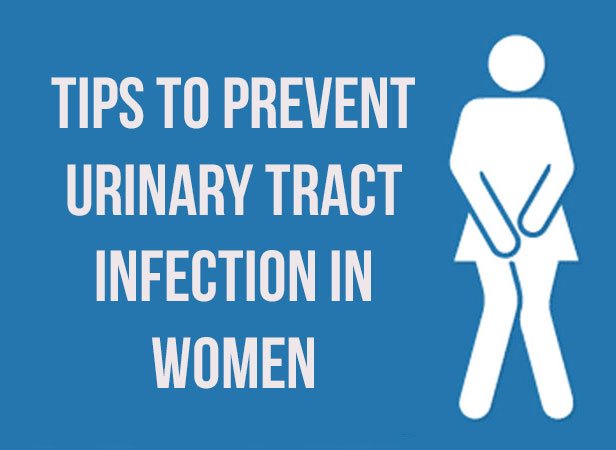Let’s get straight to it: a urinary tract infection, also known as a UTI, is one of the most common bacterial infections in the body. UTIs affect about 150 million people worldwide, so chances are you’ll get one at some stage in your life. When we say it, we’re referring to the intense urge to pee that doesn’t go anywhere, as well as the cloudy, smelly, or blood-tinged urine that comes with it.
In a nutshell, it stinks. Fortunately, treatment is reasonably simple, and there are steps you can take to prevent them entirely.
What Is UTI?
UTI is a bacterial infection of the urinary tract. Approximately 40% of women and 12% of men would encounter at least one symptom of UTI throughout their lifetime, with up to 40% of affected women suffering from persistent UTI. It’s also one of the most common medical problems that occur during pregnancy.
A urinary tract infection (UTI) affects every portion of the urinary system, including the bladder, kidneys, urethra, and uterus. It can be very painful and inconvenient, and if it spreads to the kidneys, it can have severe implications. Antibiotics are typically prescribed by doctors to treat UTI.
How do you get UTI?
Microbes reach the urinary tract and cause infection, resulting in a UTI. UTIs are most commonly caused by bacteria, but fungi may affect the urinary tract on rare occasions. Most UTIs are caused by E. coli bacteria, which reside in the intestine.
UTIs are also increased by certain forms of birth control. Spermicides can irritate the skin, allowing bacteria to enter. Diaphragms can cause the urinary flow to slow down, allowing bacteria to multiply. Condoms that aren’t lubricated or spermicidal condoms can irritate the skin, allowing bacteria to multiply.
Here are some factors which may just encourage the bacteria to grow even more:-
- Drinking insufficient fluids
- Keep urine in for long periods of time on purpose
- Injury to the spinal cord or other nerve damage makes it difficult to drain the bladder completely and on a regular basis.
- Tumors, kidney stones, enlarged prostate, and sexual intercourse are all examples of problems or situations that restrict the flow of urine.
- Diabetes and other illnesses that weaken the immune system’s ability to combat infection
- Pregnancy causes hormonal changes in the urinary tract, making it easier for bacteria to spread via the ureters and kidneys.
- Poor Personal Hygiene
- Heavy usage of antibiotics can damage the bowel and the urinary tract’s natural flora.
Symptoms that should not be ignored
The symptoms of a urinary tract infection differ depending on which part of the urinary tract is affected.
Symptoms of a lower urinary tract infection (UTI) include:
- Urination creates a burning feeling.
- increased urination frequency without passing a lot of urine
- Urination has become more urgent.
- urine that looks like cola or tea
- urine with a strong odor
- Women’s pelvic pain and
- men’s rectal pain
The kidneys are damaged by upper urinary tract infections (UTIs). If bacteria travel from the infected kidney into the bloodstream, this can be fatal.
Symptoms of an upper urinary tract infection (UTI) include:
- Tenderness and discomfort in the upper back and sides
- Fever
- Nausea
- Vomiting
- Chills

How can this infection be avoided?
- Drink plenty of water and other liquids. Drinking water dilutes your urine and encourages you to urinate more often, allowing bacteria in your urinary tract to be washed out before an infection develops.
- Cranberry juice should be consumed. While studies on cranberry juice’s ability to prevent UTIs are inconclusive, it is unlikely to be harmful.
- Wipe the entire surface from front to back. After urinating and having a bowel movement, do so to prevent bacteria from spreading from the anal area to the vagina and urethra.
- During sex, empty your bladder as soon as possible. Additionally, drink a full glass of water to aid in the flushing of bacteria.
- Avoid using any feminine items that might irritate you. Using deodorant sprays or other feminine products in the genital region, such as douches and powders, can irritate the urethra.
- Change the system of birth control. Bacterial development may be aided by diaphragms, as well as unlubricated or spermicide-treated condoms.
- Holding your urine in your bladder encourages bacterial development. Try not to wait longer than 3 to 4 hours between peeing sessions and drain your bladder completely full-time. If you are not able to find a hygienic washroom use the weesure urinal device which is easy to carry and very portable.
- Avoid using public restrooms as the hygiene standards of the public restroom in India are very low. We would recommend you to get this new product from weesure which is a urinal device and can be used by women to get the freedom to stand and pee and avoid contact with the dirty urinals in such restrooms.



